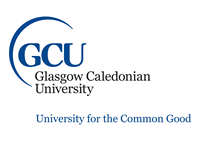Dr John Butcher, Dr Catherine Wright, Dr Patricia Martin
Applications accepted all year round
Self-Funded PhD Students Only
About the Project
Project reference number: SHLS19005
Background
Periodontal disease (PD) is a chronic inflammatory and bone destructive disease that imposes a substantial social and economic burden, and has been linked to the initiation and progression of cardiovascular disease, diabetes, rheumatoid arthritis, and Alzheimer’s disease. Development of PD is associated with dysbiosis of the oral microbiota and an accompanying dysregulated host response that leads to host tissue damage characteristic of the disease. The periodontal pathogen Porphyromonas gingivalis has been shown to orchestrate this dysbiosis associated with PD and has been linked with associated sequelae. The gingival epithelium serves as an important mechanical barrier against infectious inflammation of the periodontal tissue. Connexins are a family of channel-forming transmembrane proteins that have been described to have many functions in a wide range of tissues; and are involved in the regulation of differentiation, control of innate immunity, and the wound healing process. Connexins have been identified as therapeutic targets in wound healing. However, the function and modulation of connexins in the oral cavity epithelium in the context of wound healing and a healthy or dysregulated oral microbiota remains poorly understood.
Aims
This PhD will investigate the impact of the oral microbiota on gingival cell connexin function and regulation. The project will elucidate the role of individual microbial species colonising the oral cavity in health and disease through in vitro microbial biofilm co-culture with gingival cell / immune cell / 3D human gingival model experiments to assess disease specific host responses to colonising bacteria. The effects of bacteria on the gingival wound healing response will be investigated in the models. These experiments will increase the understanding of gingival barrier function and wound repair during exposure to oral microbes. These findings will contribute to the assessment of existing, and identification of novel, therapeutic strategies to combat this disease.
Specifications
The successful applicant will hold a first or upper second class honours degree within biological science, with previous laboratory research experience desirable.Candidates are requested to submit a more detailed research proposal (of a maximum of 2000 words) on the project area as part of their application.
How to Apply
This project is available as a 3 years full-time PhD study programme with a start date of 1st October 2019
For information on How to apply and the online application form please go to
https://www.gcu.ac.uk/research/postgraduateresearchstudy/applicationprocess/
Applicants shortlisted for the PhD project will be contacted for an interview.
Research Strategy and Research Profile
Glasgow Caledonian University’s research is framed around the United Nations Sustainable Development Goals, We address the Goals via three societal challenge areas of Inclusive Societies, Healthy Lives and Sustainable Environments. This project is part of the research activity of the Research Group – Molecular Mechanisms of Diabetes and other Long Term Conditions https://www.gcu.ac.uk/hls/research/researchgroups/molecularmechanismsofdiabetes/.
Funding Notes
Applicants are expected to find external funding sources to cover the tuition fees and living expenses. Alumni and International students new to GCU who are self-funding are eligible for fee discounts. See more on fees and funding. www.gcu.ac.uk/research/postgraduateresearchstudy/

 Continue with Facebook
Continue with Facebook

